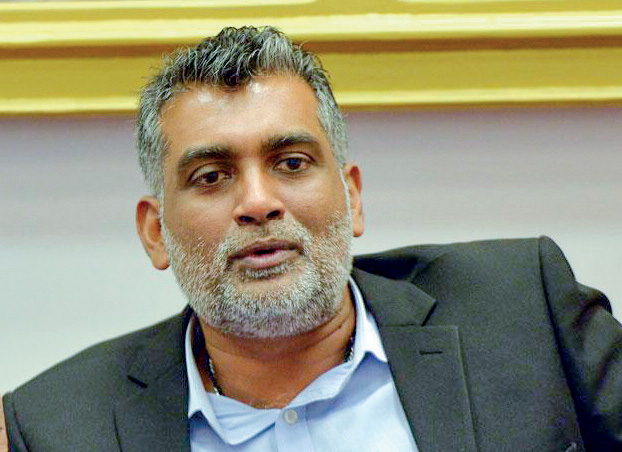Life style
Every style in every size

Shyamalie Wijegunawardena of Spring and Summer, co-founder of this brand was recognised as number female entrepreneur in the large business category at the International Conference of Women’s Entrepreneurship (ICSE). The fashion industry be it in Sri Lanka or globally, presents exotic, melodramatic or glamorous silhouettes, cuts, patterns and diverse designs majorly curetted to quench the fashion hungry population apparently being women. However, today, the fashion world is witnessing a reformation not merely in the kind of fashion, seeping in but with women designers stealing the ramp with their unique silhouettes that are creating a magnitude of ripples in the fashion world. Shyamalee Wijeyagunawardena with her creative instincts have made a benchmark in this competitive business
by Zanita Careem
How you started your journey?
I always had a liking for fashion, beauty and cosmetics. The desire to make a career out of these elements was something that was certainly in my heart for a long time. While I was a student in university, I remember taking many minor courses in such disciplines. However, my light bulb moment happened after the birth of my second son. I wanted to get engaged with something that would financially contribute to the household. Following my sister’s guidance, I decided to supply to Salu Sala – Sri Lanka’s state-owned fashion retail enterprise at the time. This decision changed my life completely. I was lucky to get a shop in Borella in 1995 even though it was just 300sq ft. I was content. I had a good customer base that kept coming to my store.
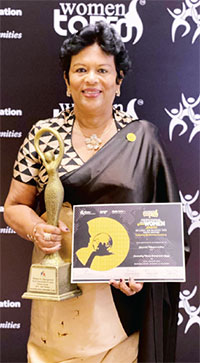 Lessons along the way?
Lessons along the way?
a. Family first
b. Always treat your employees like your own family and most of all be a mother to them with all your heart
c. Build a good team that is loyal and they will give their blood and sweat to the company
d. Build a capital by saving. Always spend money wisely by knowing what you can actually spend
Was it different to be a female entrepreneur?
My main challenge is the same as all women face in Sri Lanka, be it at the grassroots or at the top echelons – balancing family and work. In my case because of the supportive network we had built with our employees, I was able to fulfill both my responsibilities and that is how we empower our female staff too to enjoy a stable work-life balance.
How did you manage as a mother?
As a women entrepreneur, we must be willing to break any barriers, which confines us to limit ourselves. For me, my priorities were a wife and mother and looking after the wellbeing of my family. I firmly believe that without my husbands and family’s support and love, I would not have been successful. Fundamentally, entrepreneurs should never forget that the wellbeing of their families should be their first and foremost priority.
How involved is your family now?
Spring & Summer is a business where the warmth and support of the family has led to success. I have the support of not just my sons, who have pursued their higher education, but also the support of their spouses.
Can you tell us a little about your company?
Spring & Summer commenced operations in 1995 with the opening of their first outlet in Borella. Now almost 25 years later, Spring & Summer has grown to become a leading retailer in Sri Lanka with six major outlets in Nugegoda, Maharagama, Wattala, Panadura, Bambalapitiya and Colpetty. As well as these locations, Spring & Summer’s online store caters to customers in every corner of the island. I am the entrepreneur and brainchild behind the brand, building the business from my operations.
We have expanded to employ over 400 staff members. We see the business as a family and aim to care for all our employees like family members. This level of care is passed on to customers, which contributes to a great shopping experience.
Our constant improvements, research and keeping up to date with latest fashion trends have always kept us one step ahead than most of the other local clothing stores. Unlike most of these stores, we do not give priority to imported garments. I can say 85 percent of the clothes we sell at our stores has been designed and stitched locally. It is important to keep up to date with international trends and modern manufacturing practices. It is a must to be creative and innovative to be a success in this industry.
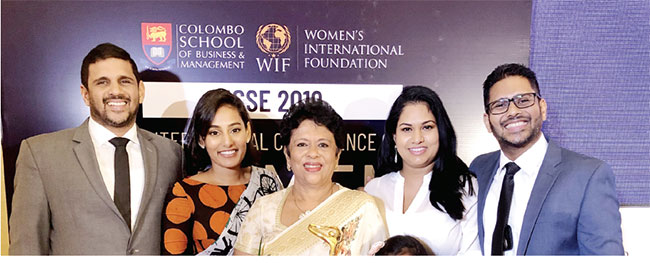
Also, we always look at the contemporary fashion and latest trends in the country and provide the most desired designs with the highest quality. We take care of each other and we take care of our clients. This is the way we will continue to succeed.
What do you consider as your biggest challenge?
The biggest challenge was developing a business without a capital. So we had to rely on our friends and family who were very helpful. Also we had to save every penny that we earned from our business to reinvest and expand it.
What leadership characteristics are your strengths and weakness?
Empathy – The ability to understand and share the feelings of another
Courage – Doing the right thing
Some times empathy can be taken advantage of hence it would become a weakness but in the overall scheme of things it’s not because things done with good intensions are always rewarded.
Memorable experience? Make or break moment in your career?
I am proud to say Spring & Summer was the first to introduce a dedicated White Section on the shop floor. This is one of the turning points in our business because If anyone wants something in white, we were known as the place to offer that. Our popularity started to grow exponentially in the market due to this.
Your favourite thing to do in your free time?
Spending time with my five grandkids. I also like to read books and watch movies.
Your inspiration?
For me, my family is my greatest inspiration. Entrepreneurs should never forget that the wellbeing of their families should be their first and foremost priority.
It is important to know what your passion is and also what drives you to better yourself. This passion within the entrepreneur is what gives strength to the business which then translates to customer attraction. Personally, my family is my first priority and as a result of that, massive financial gain has never been a driving force for me.
Life style
Cinnamon Life at City of Dreams receives prestigious five-Star certification from SLTDA

Cinnamon Life that has re-defined Colombo’s skyline added another accolade to its journey as it officially received its five star certification placing it among the most distinguished luxury properties in Sri Lanka’s hospitality landscape.
Receiving the five star classification is a significant achievement for any hotel but Cinnamon Life – the flagship of Sri Lanka’s most ambitious integrated lifestyle development, the accolade carries exceptional meaning. The recognition follows a rigorous evaluation of service standards,facilities,and operational excellence,underscoring the property’s commitment to delivering world class guest experiences
– Cinnamon Life at City of Dreams has been officially awarded the esteemed Five-Star Certification by the Sri Lanka Tourism Development Authority (SLTDA), underscoring its status as a landmark in Sri Lanka’s hospitality landscape and a benchmark for excellence in the region.
As South Asia’s largest and first fully integrated resort, Cinnamon Life at City of Dreams represents a transformative investment in Sri Lanka’s tourism and leisure economy. Developed by John Keells Holdings PLC with a historic USD 1.2 billion investment – the largest private development in the country – the resort has reshaped Colombo into a premier destination for luxury travel, entertainment, world-class events, and international business.
A hallmark of the property is its extensive event and convention infrastructure, featuring over 160,000 sq. ft. of versatile, high-spec event space. With five signature ballrooms, cutting-edge technology, and three exceptional outdoor venues offering panoramic views of the ocean and the Colombo skyline, Cinnamon Life has established itself as an unrivalled hub for global conferences, high-profile celebrations, and corporate gatherings for both local and international travellers.
“We are deeply honoured to receive this Five-Star Certification from the Sri Lanka Tourism Development Authority,” said Sanjiv Hulugalle, CEO and General Manager of Cinnamon Life at City of Dreams. “This recognition reflects our unwavering commitment to world-class service, guest centric innovation, and the elevated experiences that define Cinnamon Life. Our aspiration is to set new standards for luxury, leisure, and MICE tourism in the region, while supporting Sri Lanka’s positioning on the global stage.”
The Five-Star Certification further cements Cinnamon Life at City of Dreams as one of Sri Lanka’s foremost luxury destinations. With its two luxury hotels, curated signature dining concepts, immersive entertainment arenas, and a vibrant retail and lifestyle precinct, the resort offers an unparalleled blend of hospitality, lifestyle, and experiences under one iconic address.
The certification was presented at Cinnamon Life, attended by senior leadership from SLTDA and Cinnamon Life, members of the hospitality industry, and media representatives. The event celebrated this milestone achievement and marked a significant step forward in elevating Sri Lanka’s luxury hospitality offering.
About City of Dreams
City of Dreams is Sri Lanka’s largest and most ambitious integrated resort, redefining Colombo’s skyline as a symbol of modern luxury and innovation. Designed as a “city within a city,” the destination offers 800 luxury rooms and suites, with 687 at Cinnamon Life and 113 at NUWA, complemented by a diverse selection of 13 restaurants and bars that showcase global cuisines alongside Sri Lanka’s rich culinary heritage. Adding to its appeal is a vibrant mix of high-end retail, Sri Lanka’s premier entertainment arena, a shopping mall, office towers, and luxury residences. This integrated ecosystem enables delegates to stay, work, meet, dine, shop, and celebrate seamlessly under one roof, delivering unmatched convenience and engagement.
Life style
Tourist Board reassures: Sri Lanka safe, open and ready
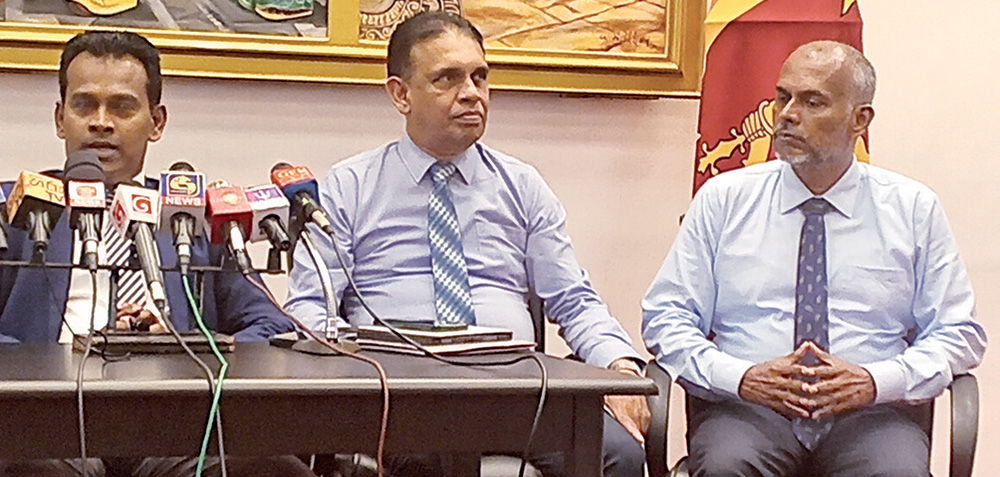
Cyclone Ditwah carved a trail of devastation as it roared across many regions, unleashing a deluge that transformed the entire towns into destruction. This is one of the most unforgiving storms in recent years – bringing torrential rains, violent winds and a trail of destruction that left thousands displaced in a matter of hours. Homes swept away, roads disappeared and families were forced to flee.
Yet beneath the chaos and loss, a quiet resilience emerged, communities rallied, rescue teams worked around the clock to restore roads, relocate displaced families and ensure the safety of the tourists.
Now with waters slowly receding, the full story of Ditwah’s impact is only a beginning to unfold – a story of heartbreak, survival and the long road to rebuilding.
Cyclone Ditwah delivered a sharp blow to the tourism sector within hours and days, disrupting travel routes, damaging coastal routes, and forcing authorities to reassess visitor safety. as hoteliers,tour operators,and government agencies worked round the clock to stabilise operations.The industry soon reassured global travellers that the island remains open and resilient.Rescue teams were deployed immediately, working around the clock to evacuate families and restore essential services.
While several areas experienced significant damages, authorities assured that key tourism zones remain safe and operational.
 A press conference was summoned by the Ministry of Tourism and Foreign affairs, last week bringing together top officials, media and other hospitality partners to address growing public concern,assure international travellers and outline the immediate steps taken to ensure safety across all tourist zones. The Deputy Minister of Tourism, Professor Ruwan Ranasinghe and Chairman of SLTPB, Buddhika Hewawasam stepped forward to present a clear,unified message that Sri Lanka remains safe, prepared and committed in protecting the visitors. They calmed anxieties,dispelled myths,rumours and dispelled misinformation and revealed the coordinated efforts of the government to keep the hospitality industry unshaken.
A press conference was summoned by the Ministry of Tourism and Foreign affairs, last week bringing together top officials, media and other hospitality partners to address growing public concern,assure international travellers and outline the immediate steps taken to ensure safety across all tourist zones. The Deputy Minister of Tourism, Professor Ruwan Ranasinghe and Chairman of SLTPB, Buddhika Hewawasam stepped forward to present a clear,unified message that Sri Lanka remains safe, prepared and committed in protecting the visitors. They calmed anxieties,dispelled myths,rumours and dispelled misinformation and revealed the coordinated efforts of the government to keep the hospitality industry unshaken.
Tourism authorities pointed out even in the aftermath of Ditwah,the arrival of the cruise ship sent a powerful message. the ship’s docking underscored that Sri Lanka is safe . The arrival of this luxury cruise liner carrying hundreds of international passengers, was part of a regional voyage from Mumbai to Singapore. This was a symbolic moment unfolding at the harbour, it was a glimmer of hope in a week overshadowed by stormy clouds. The Tourism authorities reflected this arrival as a sign that confidence in Sri Lanka had not lost hope and showed Sri Lanka is steady,ready,and open.
The Deputy Minister of Tourism Professor Ruwan Ranasinghe in a speech marked by confidence and determination said. “Our teams have worked round the clock to ensure safety, restore access routes and support our travellers”.
Today I assured every traveller Sri Lanka is safe, Sri Lanka is open, and Sri Lanka is ready. He confirmed that all major coastal resorts from Negombo to Bentota remain fully operational. Cultural destinations such as Kandy, Dambulla, Kandy,Sigiriya, are now open. He further noted that national parks,including Yala, Udawalawe,Wilpattu had returned operations following rapid assessments. Our key tourist zones are open,accessible and operating under verified safety conditions. He assured that every tourist in the island was safe,
He praised the rescue teams who had worked round the clock, cleaning roads, supporting displaced families and ensuring tourism infrastructure remained intact. To the world I say please come visit, and explore. Our island stands tall and more ready than ever to welcome you. This is not just recovery, he concluded,this is resilience in action. Finally he stressed that Sri Lanka’s tourism sector had demonstrated structural resilience,operational continuity and readiness to maintain international confidence.
The Chairman of the SLTPB Buddika Hewawasam also briefed the media on the ongoing relief operations. He acknowledged the sharp blow and destruction but underscored the country’s resilience. We want to assure travellers that Sri Lanka remains safe. Our teams are on the ground, our infrastructure is being restored and our hospitality sector stands ready to welcome visitors as recovery unfolds.
He said “New the waters have receded, and Sri Lanka is ready to welcome the world. Cyclone Ditwah swept through the island with devastating force, but in its aftermath, a story of resilience, beauty and unwavering hospitality has emerged – one that travellers are invited to witness firsthand”.
For travellers, this is a chance to experience a Sri Lanka that is vibrant and sparkling with life where cultural heritage, natural beauty and warm hospitality blend. Cyclone Ditwah may have left a mark, but it could not dim the island’s radiance.
The Tourism sector is preparing to move forward with renewed emphasis on resilience, safety and rebuilding confidence among international travellers. Sri Lanka has weathered the storm and the world is already sailing back to its shores.
Life style
Championing mental health, rehabilitation, and social upliftment

Tiesh jewellery , announced a meaningful partnership with the Infinite Grace Foundation Sri Lanka, an organisation dedicated to transforming lives through love, dignity, purpose, and long-term social impact.
This collaboration marks a significant milestone as two Sri Lankan entities join hands to address some of the country’s most urgent and overlooked challenges, including mental health, drug addiction, prisoner rehabilitation, anti-human trafficking awareness, and the empowerment of estate communities.
Founded on the belief that “Every life deserves to be seen and loved,” the Infinite Grace Foundation symbolises hope, transformation, and inclusion. The Foundation works to extend a lifeline to those often ignored or marginalised, ensuring they are reminded that they are valued, loved, and never alone.
Their vision is deeply aligned to create a Clean Sri Lanka—not only in its physical environment, but in its hearts, minds, and communities. Through systemic intervention, awareness, and rehabilitation, the organisation aims to restore dignity, provide second chances, and help individuals reclaim their potential.
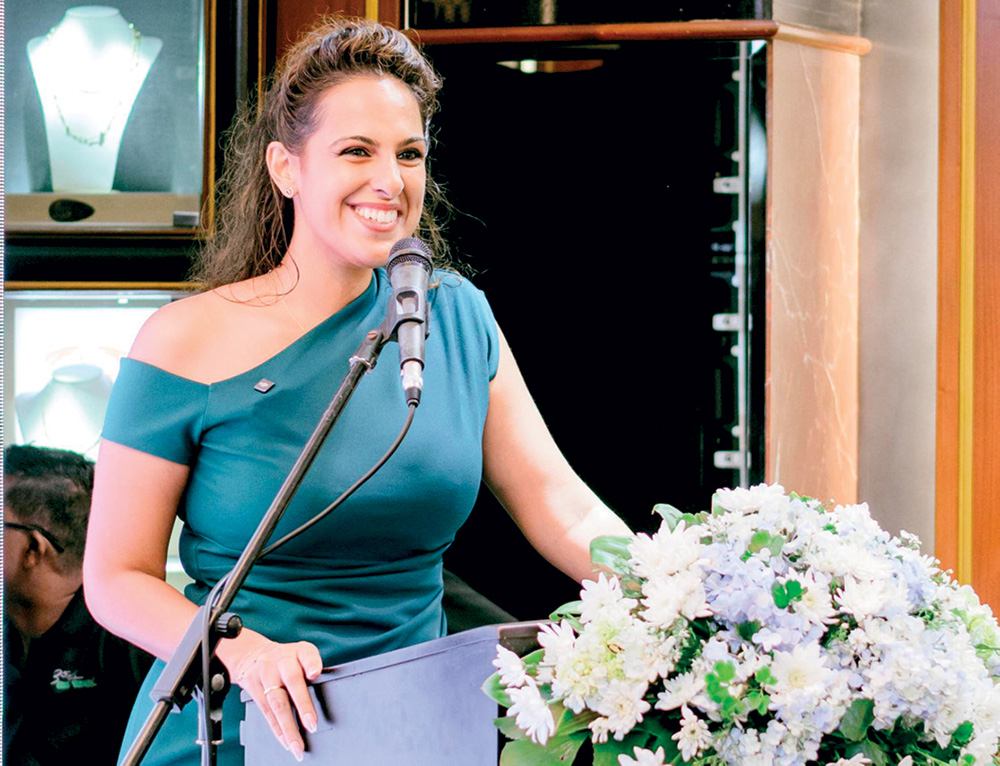
Stephanie Siriwardhana, Founder of the Infinite Grace Foundation and Brand Ambassador for Pure Gold by Tiesh
As part of its awareness and empowerment initiatives, Infinite Grace Foundation has launched the “I See You” campaign—an effort to recognise, support, and uplift individuals who have long been overlooked. Through this campaign, the foundation aims to promote year-round advocacy, encompassing mental health support, panel discussions, and collaborations with organisations and hotlines that support vulnerable groups across the island.
In support of this meaningful initiative, Tiesh has designed an exclusive jewellery collection created with intention and purpose. All proceeds from the collection will be donated directly to the Infinite Grace Foundation. The range features intricately crafted earrings, pendants, chains, rings, and more for women, as well as bracelets, cufflinks, lapel pins, and rings for men. Offered in diamonds, as well as gold and silver, each piece carries a profound message—that every life deserves to be seen, acknowledged, and loved.
With a legacy spanning more than two decades, Tiesh founded by Lasantha and Bryony De Fonseka, has become synonymous with innovation, excellence, and artistry in Sri Lanka’s jewellery landscape. Today, the family-run business is led by the next generation, with Directors Ayesh De Fonseka and Thiyasha De Fonseka continuing to uphold the brand’s commitment to integrity, community, and craftsmanship.
Stephanie Siriwardhana, Founder of the Infinite Grace Foundation and Brand Ambassador for Pure Gold by Tiesh, expressed the impact of this partnership: “This collaboration is special in many ways, and I’m truly grateful that a prestigious jeweller like Tiesh cares about communities that are often unseen—such as prisoners and estate workers. When you change one life, you change a family. When families transform, communities transform, and soon you change the nation. This initiative comes from a personal place. Many people struggle to ask for help, including myself. Through the ‘I See You’ campaign, we aim to provide support, raise awareness, and offer year-round mental health programs, alongside organisations and hotlines that are equipped to help victims and individuals in need. This partnership with Tiesh will be deeply impactful.”
The work of the Infinite Grace Foundation spans multiple critical pillars, including prison reforms, addiction rehabilitation, community education, vocational training, anti-human trafficking awareness, and mental health destigmatisation—all designed to create long-term, sustainable change across Sri Lanka.
Reflecting on the significance of the collaboration, Director of Tiesh, Ayesh De Fonseka, added, “Helping the community is rooted in our beliefs and upbringing. This partnership presented a meaningful opportunity to give back and support an important cause. We believe in second chances, and many individuals need guidance, care, and the opportunity to rebuild their lives. We are honoured to donate all profits from this collection. In the future, we hope to extend support further by offering job opportunities—whether in jewellery craftsmanship, box making, design, or other livelihood pathways.”
Through this partnership, Tiesh and Infinite Grace Foundation reaffirm their shared commitment to building a Sri Lanka where hope thrives, opportunities are equitable, and transformation is within reach for all.
For those wishing to support this initiative or explore the special collection, please visit the Tiesh showroom at 253 R. A. De Mel Mawatha, Colombo 03, or follow Tiesh on social media for updates and campaign information.
-

 Features6 days ago
Features6 days agoFinally, Mahinda Yapa sets the record straight
-

 News7 days ago
News7 days agoCyclone Ditwah leaves Sri Lanka’s biodiversity in ruins: Top scientist warns of unseen ecological disaster
-

 Features6 days ago
Features6 days agoHandunnetti and Colonial Shackles of English in Sri Lanka
-

 Business4 days ago
Business4 days agoCabinet approves establishment of two 50 MW wind power stations in Mullikulum, Mannar region
-
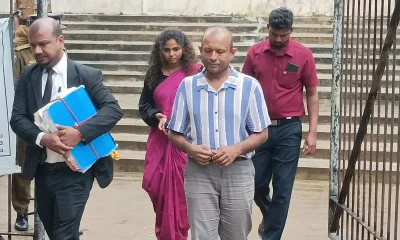
 News5 days ago
News5 days agoGota ordered to give court evidence of life threats
-

 Features7 days ago
Features7 days agoAn awakening: Revisiting education policy after Cyclone Ditwah
-

 Features5 days ago
Features5 days agoCliff and Hank recreate golden era of ‘The Young Ones’
-
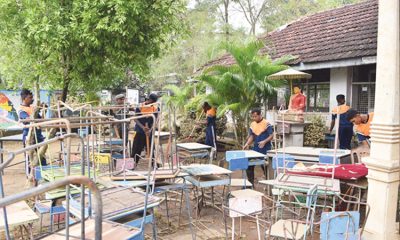
 Opinion6 days ago
Opinion6 days agoA national post-cyclone reflection period?



